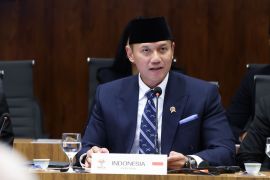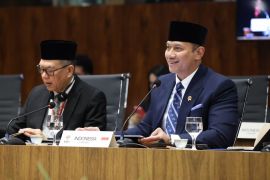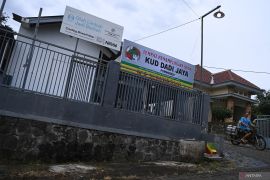"As of now, some 80 percent of the money in the country is circulating in the capital city of Jakarta. This prompts people to move to Jakarta and to other big cities," the minister stated after attending a meeting on the mechanism of the Family of Hope Program at the Ministry of Political, Legal and Security Affairs here on Tuesday.
The post-Lebaran urbanization, Khofifah added, is in accordance with the push and pull theory as homebound travelers from big cities to villages tell their success stories to villagers who are then encouraged to migrate to big cities.
"People will be encouraged to move to cities when they feel that cities promise prosperity for their future," the minister argued.
She clarified that it is alright to let people migrate and urbanization to happen as long as they have the capability and skills that they can use in cities.
If they have no skills or special capability, the minister suggested that villagers should first undergo certain courses to equip themselves to live in cities.
"Those who have skills, please do migrate. But those who have no skills, pursue some courses first before leaving for cities," she advised.
It has been a common practice for city workers or dwellers going to village to celebrate the Lebaran festivities and returning to cities with one or several friends in tow, all set to try their luck.
A study has revealed that every year after Lebaran, the population of Jakarta increases by 100 thousand newcomers.
Apart from that, cities such as Bekasi District in West Java also see urbanization. This year, it will accommodate about 10 thousand newcomer additional residents after Lebaran.
With thousands of companies scattered in seven industrial areas and the minimum wage standard at Rp3.3 million, the Bakasi District is a strong magnet for people looking forward to make a living in the region. (*)
Editor: Heru Purwanto
Copyright © ANTARA 2016











